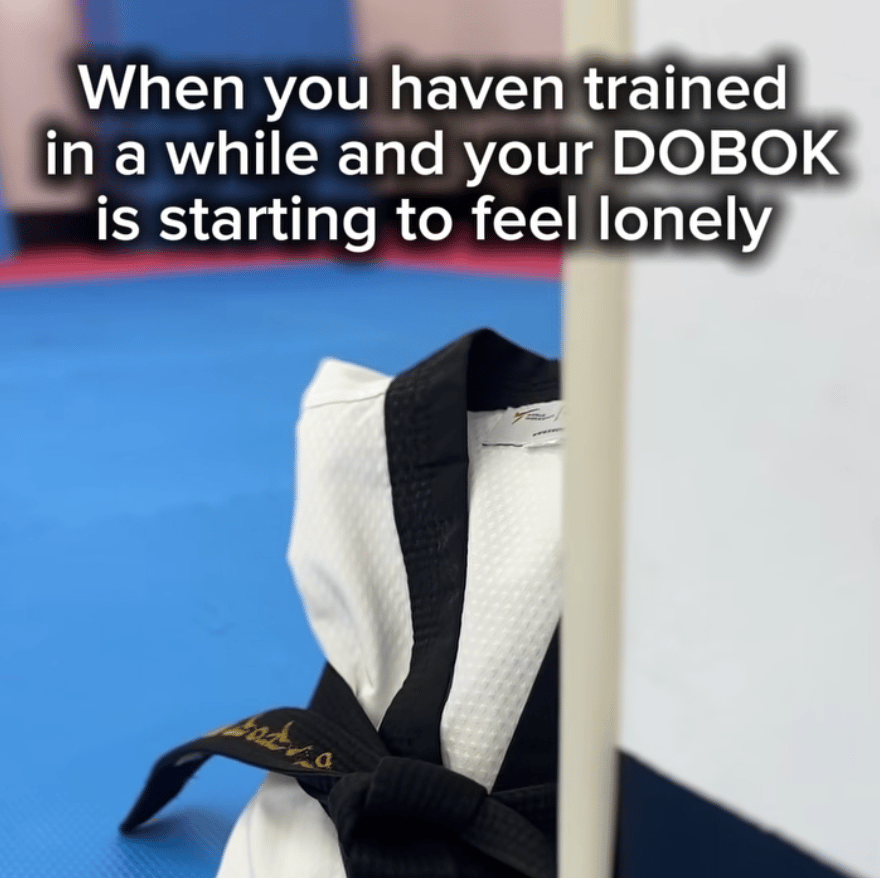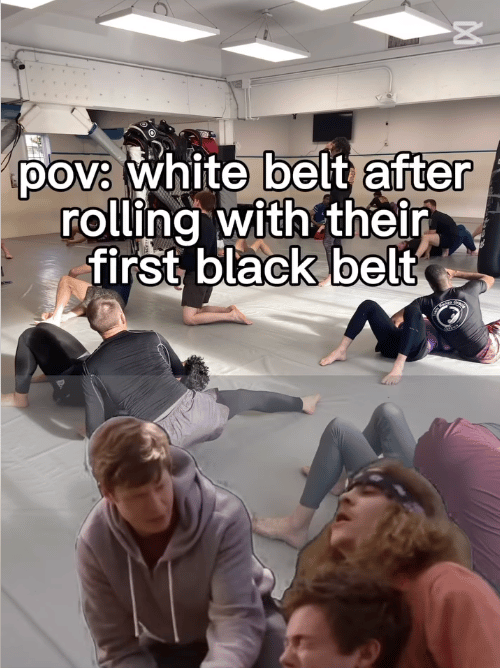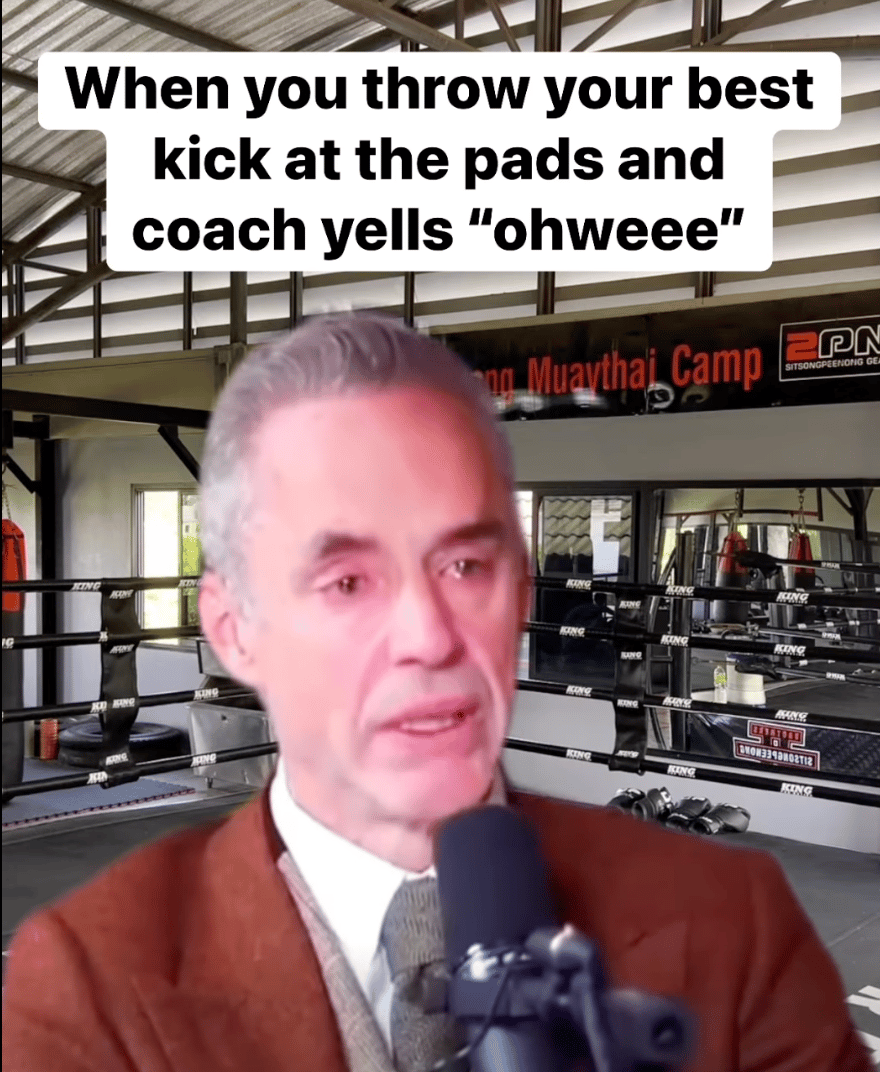- TheKick
- Posts
- 🥋 Mental Toughness Isn’t a Trait: It’s a Skill You Can Teach
🥋 Mental Toughness Isn’t a Trait: It’s a Skill You Can Teach
Why the Next Generation of Black Belts Will Be Built from the Inside Out
Hello, kickers!
💥 The Kick is Here: Toughness Isn’t Loud: It’s Trained
Let’s be honest — growth isn’t just about tactics. It’s about grit. This week, we’re diving into the mindset behind the method, with a main article focused on mental toughness — what it really is, why most people misunderstand it, and how to develop it as a core leadership muscle inside your school.
We’ll also check in on what’s shaping the culture online (see What’s Kickin’ on Social), hand you a timeless leadership classic from Carol Dweck in What We’re Reading, and remind you that real transformation doesn’t happen when you feel like it — it happens when you’ve trained for it.
Whether you’re building your team, coaching the next belt level, or pushing yourself to lead at a higher standard… this issue is for you.
🥋 Mental Toughness Isn’t a Trait: It’s a Skill You Can Teach

Let’s talk about the gap.
We’ve all seen it: the student who crushes it in class but crumbles at a tournament. The kid with a perfect form who panics under pressure. The athlete who quits after one bad day.
It’s not a technique problem. It’s a mental toughness problem.
And if we’re honest? Most schools aren’t systematically training it.
They expect students to “rise to the occasion” in high-pressure moments without ever building the psychological muscle to handle them.
It’s like expecting a white belt to land a flying sidekick on day one.
🧠 Mental Toughness = Pressure Performance
Mental toughness isn’t about “being tough.” It’s about:
Staying focused under pressure
Recovering from failure fast
Managing anxiety and performing anyway
Persisting through challenge and discomfort
Maintaining motivation even when it’s hard
Research proves this can be trained — just like a kick. And just like physical technique, it requires structured repetition, intentional progressions, and specific feedback.
So how do we build that into our schools?
Start here.
💬 1. Train Their Inner Voice: Self-Talk Coaching
Every student has a voice in their head. For some, that voice says:
“I always mess up. I’m not good at this. I’ll never pass.”
That voice? It kills performance.
✅ Fix #1: Awareness
Have students reflect on recent challenges and write down what they were thinking.
They’ll realize they’ve been saying things they’d never say to a friend.
✅ Fix #2: Replacement Phrases
Instead of “I’m bad at this,” teach them:
“I’m still learning this. I’m getting better every time.”
✅ Fix #3: Self-Talk Cards
Have students write negative phrases on one side of an index card, and their replacements on the other. Review before class. Over time, the new voice becomes automatic.
✅ Fix #4: Effort-Focused Language
Swap “I have to win” with “I’m going to give my best effort.”
Outcome-focus creates pressure. Effort-focus builds resilience.
🔥 2. Reframe Failure So It Builds Confidence (Not Anxiety)
Failure isn’t just common. It’s required for mastery.
So why do so many kids treat it like the end of the world?
Because they’ve never been taught how to process it. That’s your job.
✅ Shift Your Language
Instead of: “That was wrong.”
Try: “Here’s what we’ll adjust.”
✅ Ask Questions, Not Judgments
“What did you notice about that attempt?” gets students analyzing instead of spiraling.
✅ Run Failure Debriefs
After tough classes, ask: “What mistake did you make today? What did you learn from it?”
✅ Tell Failure Stories
Jordan got cut from varsity. SEALs fail in training. Your black belts once got crushed in sparring. Make that normal.
✅ Celebrate Failing Forward
Create “Failure of the Week” awards for the kids who fall down — and get back up.
✅ Teach a Recovery Protocol
Breathe
Name it without judgment
Identify the fix
Try again immediately
✅ Bring Parents Into It
Coach them not to comfort — but to reframe:
“It is hard. But I know you can do hard things.”
🧱 3. Run Monthly Mental Toughness Challenges
You can’t expect toughness without building it progressively.
Just like pushups or sparring rounds, mental toughness grows through structured overload.
Create monthly challenges that push students just outside their comfort zone:
🟣 Endurance Challenges – Marathon classes, high-rep drills
🟣 Time Challenges – Early morning training sessions
🟣 Discomfort Challenges – Longer water breaks, train in rain or heat
🟣 Pressure Challenges – Surprise demos, “instant tests”
🟣 Stillness Challenges – Silent meditation builds mental control
🟣 Social Challenges – Teaching peers, leading warmups
🎖️ Give badges or XP for completion.
🙌 Celebrate completion over perfection.
Train your students to push through — and watch their confidence explode.
📊 How to Measure Progress
Mental toughness isn’t invisible. Here’s what to watch for:
Faster failure recovery (minutes → seconds → instant reset)
More challenge-seeking behavior
Constructive self-talk
Emotional regulation under pressure
Consistency and practice when “they don’t feel like it”
Transference to school, home, and other sports
Create rubrics, self-assessments, and parent feedback loops to track real change.
🚫 Overcoming Pushback (Because It’s Coming)
❌ “This feels too soft.”
✅ Navy SEALs and Olympic athletes train mental toughness systematically. This is high-performance coaching.
❌ “We’re too busy to fit this in.”
✅ Mental training should replace some talking, not add more content. Make it part of your class flow.
❌ “Parents won’t buy in.”
✅ Pre-frame it. Show them the academic and life-skill benefits. Use real parent testimonials to make your case.
❌ “Teens won’t take it seriously.”
✅ Tie it to what they care about (tournament wins, confidence, college apps). Use peer leaders to create buy-in.
🏆 This Is Bigger Than Martial Arts
Mental toughness transforms more than a round kick.
It affects:
Academic confidence
Emotional resilience
Social courage
Career readiness
Long-term identity
You’re not just coaching kids on the mat.
You’re preparing them for life off the mat.
🛠️ Your 30–90 Day Rollout Plan
📅 Week 1
Train your team. Choose ONE core mental skill (start with self-talk or failure).
📅 Week 2
Educate your parents. Send a PDF or run a quick seminar.
📅 Week 3
Introduce the skill to students. Practice 3x in week one.
📅 Week 4
Track progress. Tweak. Keep going.
📈 By 90 days:
You’ve got 3 core exercises running.
Your staff is fluent.
Your parents are bought in.
Your students are transforming.
💥 Final Word: In a Soft World, Build Steel
Life isn’t getting easier for this generation.
But your school can be the forge.
A place where students learn that:
Discomfort is temporary.
Failure is feedback.
They are capable of more than they think.
So teach the kick.
Drill the form.
Refine the technique.
But also:
Coach the mind.
Train the voice.
Build the grit.
This isn’t optional anymore.
It’s what the best schools are already doing.
This is how you build Black Belts for life.
Want done-for-you tools to implement all of this?
It’s all inside CORE OS — your complete system for retention, mindset training, and modern martial arts leadership.
📥 Join CORE OS now → https://impaktmastermind.com/core-lander
Let’s raise stronger kids — one mat, one mindset, one mission at a time.
The Kick’s pick of the hottest headlines in social this week:

From mental toughness to leadership clarity, this week’s top posts remind us that growth starts on the inside — and shows up in everything we lead.
🔥 Dan Martell
“Who you are in private shows up in public.”
When no one’s watching is when it matters most.
Check it out →
🔥 Ed Mylett
“If you're the same person you were last year—or even just a day ago—you're not growing.”
Big goals require big growth.
Check it out →
🔥 Dave Kovar
“Keep your vision strong, your purpose clear, and your intent positive.”
A powerful reminder from a living legend.
Check it out →
🔥 Steve Magness
The difference between tolerating pain and performing well — in sport and in life.
Check it out →
🔥 Kelly Murray
“Great teams don’t happen by accident—they’re developed through leadership, systems, and accountability.”
Preach.
Check it out →
When you surround yourself with better thoughts, you make better decisions. Stay dialed in. This is the content that sharpens leaders.
😂 Martial Memes
These memes hit home for all of us martial artists and gave us a good chuckle. Click on the image to view the original account that posted each meme. Enjoy!

Have a MEME that you want featured? Send them to us at [email protected] or tag our instagram account @thekicknewsletter.
📚 What We’re Reading: The New Psychology of Success by Carol S. Dweck.

Mindset: The New Psychology of Success
by Carol S. Dweck
👉 Grab it on Amazon
This book is a must for martial arts school owners, coaches, and anyone developing people.
Carol Dweck’s research on fixed vs. growth mindset has transformed the way elite performers think about failure, challenge, and potential. The core lesson? Talent doesn’t define your ceiling — your mindset does.
If you’re mentoring students, building teams, or trying to level up your own leadership, this is the kind of book that will give you the language and psychology to do it better.
It's not just personal development fluff — it’s a framework that aligns perfectly with martial arts.
📬 Have Something That Is Kick Worthy?
We know our readers have great ideas, insights, and stories to share! If you’ve got something that’s "kick-worthy"—whether it’s a success story, a marketing tip, or something that’s helping your school thrive—submit it to us at [email protected]. Your content could be featured in an upcoming edition of The Kick and shared with martial arts school owners around the world!
🔥 That’s a Wrap for This Week!
Mental toughness isn’t about doing everything perfectly. It’s about doing the hard things repeatedly — with clarity, recovery, and direction. When you train your team in these principles, you don’t just build better staff — you build leaders who can hold the weight of your vision when you’re not in the room.
Keep leading with discipline, not emotion.
Keep stacking the habits that build belief.
And keep showing your team that tough isn’t how you act — it’s who you train to become.



